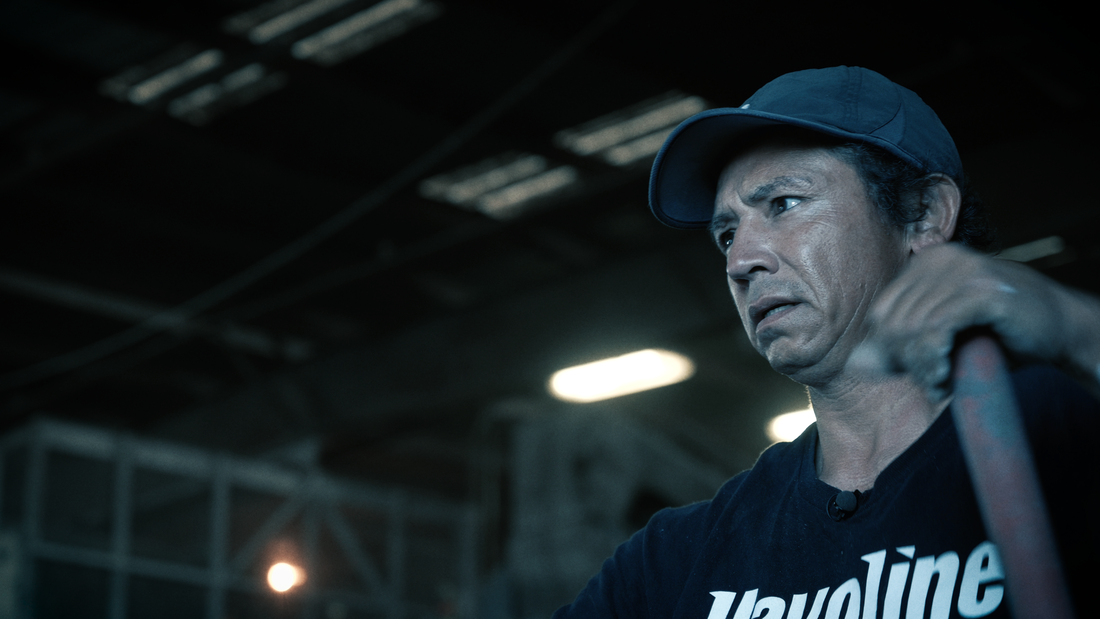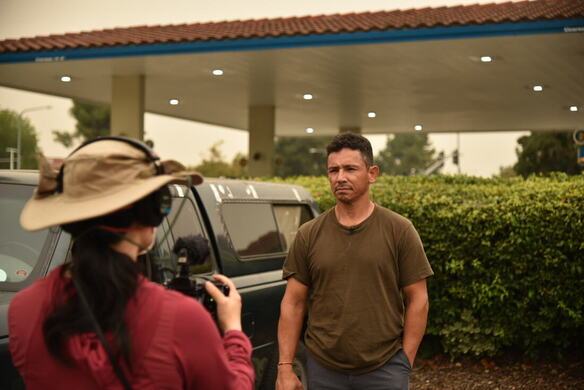|
The small cluster of workers, men, waiting outside of Home Depot. The dishwashers in the back of the restaurant that you sometimes glimpse on the way to the bathroom. The invisible hands that placed those ripe, red strawberries into the basket in your fridge, those neat yellow stitches on the pockets of your jeans. How often do we think about these people, who toil in heat, haste and exhaustion –on a good day – to make our lives more convenient, more delicious, and more affordable? Until recently, I was blissfully ignorant of the exploitation and pain that cushions my comfortable life. But then I met Jimmy Lopez, and I can no longer shop for deals without considering the human cost of my consumption. And then I met Arnoldo. Like so many, Arnoldo Lopez Contreras came to the US believing the promises of a recruiter –he would work hard, yes, but he would make great money. He could send money home to repair his damaged relationship with his daughter, maybe even convince his ex-wife to take him back. But that's not what happened. Arnoldo shares his story in my upcoming documentary, This Adventure Called California. Filmed from 2019 - 2021, it follows his emotional journey as he tries to rebuild his life and reconcile with his family, still contending with the aftermath of trauma, but also receiving unexpected generosity.
Arnoldo was one of an estimated 20 million people who live in forced labor conditions, ie, labor trafficking. I learned about labor trafficking doing research for The Long Rescue, and I realized that although it's more ubiquitous, it gets far less attention than sex trafficking. And unlike sex trafficking, which is hidden out of sight for many of us (though that's possibly because we're not be paying attention), our homes are filled products that likely contain exploitation in their history. Rare earth metals, or even nickel in electronic gadgets, chocolate, fast fashion, produce, all of these industries are known, documented to be rife with wage theft, unpaid overtime, child labor, debt bondage, or straight up slavery. But as journalist Noy Thrupkaew said in her incredible Ted Talk, “We are all implicated in this problem. But that means we are all also part of its solution.” I hope that when people understand the human cost of low prices, they learn to think twice, investigate the situation, choose companies that are transparent about their labor practices, who open their factories to third party inspectors. I hope we all think twice when hiring, ask questions when sourcing suppliers for our companies, demand compliance with Fair Trade standards the way we opt for organic food. It's not easy to be a conscientious consumer these days, I know, but every little bit helps towards building a collective movement that can change millions of lives. This Friday, July 30, 2021, join me in observing World Day Against Trafficking in Persons. You can catch a first glimpse of an excerpt of This Adventure Called California by followup us on Facebook, Twitter, or Instagram, or signing up for our newsletter here. Thanks for caring about the people who make our products, and thanks for joining in the fight.
1 Comment
Maria del Mar Vega Fernandez
8/1/2021 03:36:53 am
Gran trabajo! Un documento admirable que nos hace abrir los ojos.
Reply
Leave a Reply. |
Categories
All
|



 RSS Feed
RSS Feed